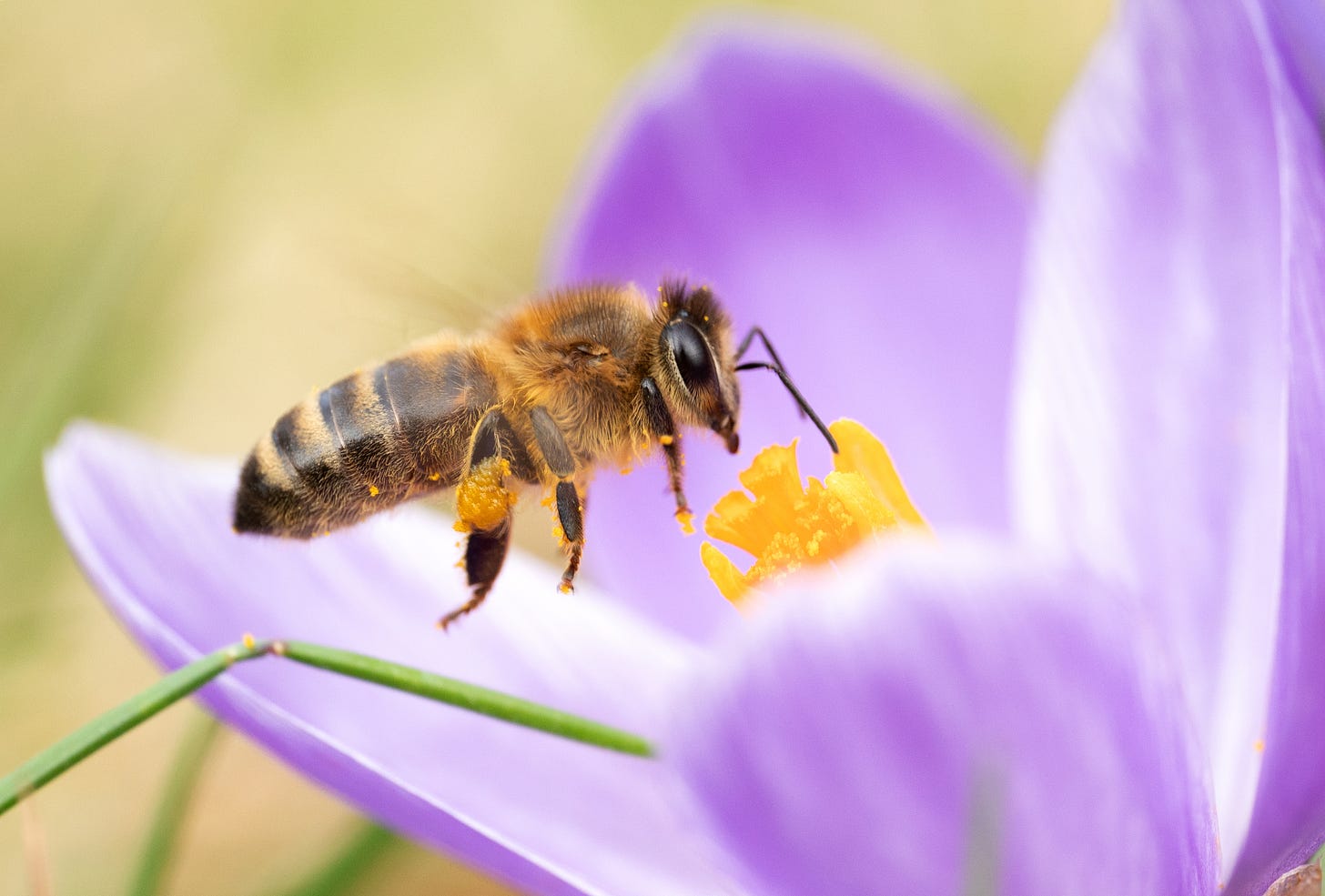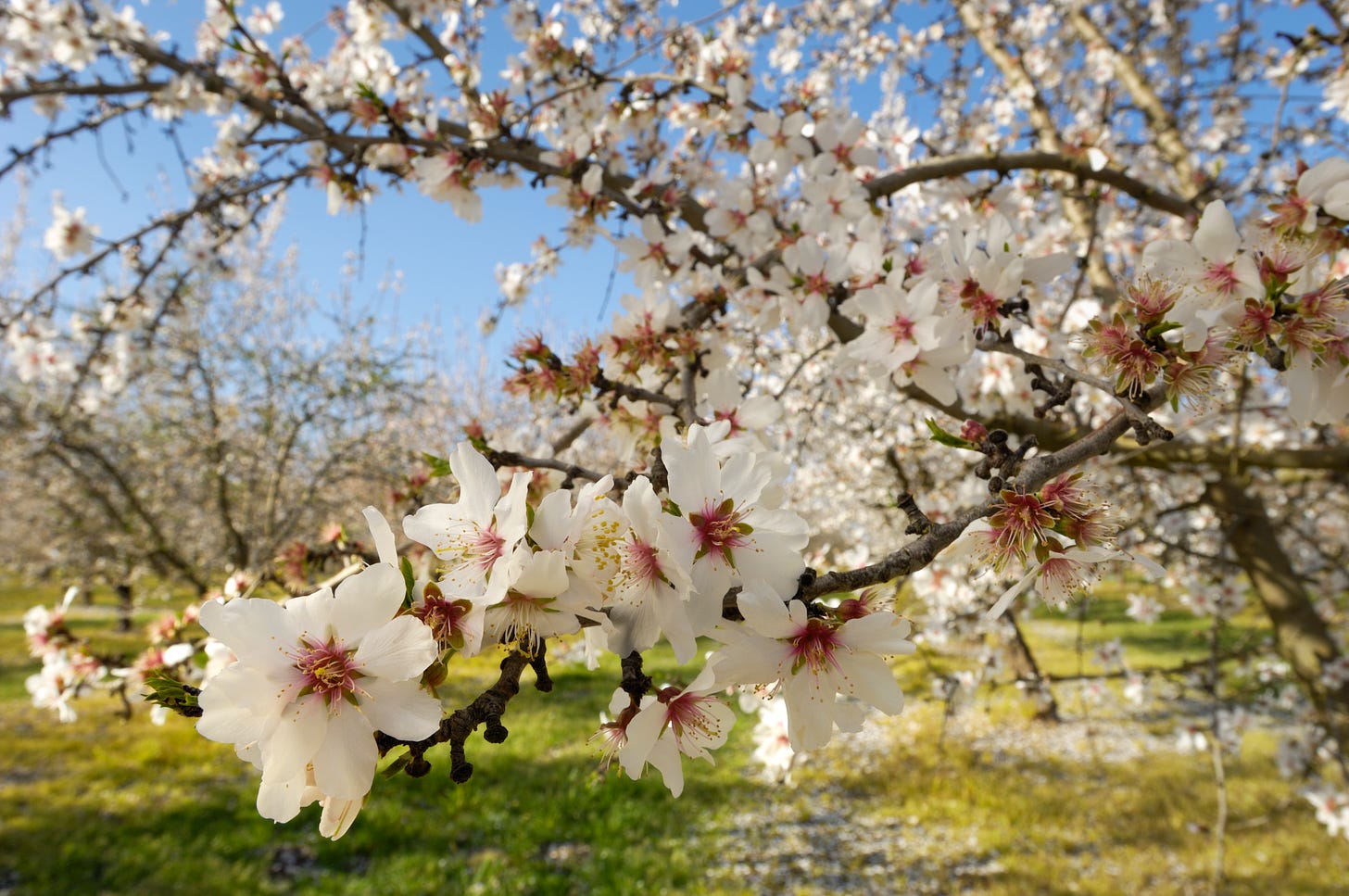Spring is springing in much of the country. It is a perfect time to get outdoors and take a break from social media and the relentless coverage of a certain presidential candidate’s constant misdeeds. So today we bring you a story not of divisive politics but of a remarkable recovery. The bees are coming back. And folks, this is a very big deal.
As we have been hearing for more than two decades, bee colonies around the world have been failing at an alarming rate. From 1989 to 2008, more than 30 percent of U.S. commercial honeybee colonies collapsed. The warnings were dire. Without bees, we have many fewer pollinators. Without pollinators, farmers cannot grow crops. Bees are responsible for pollinating one-third of all food grown.
Scientists worldwide have been trying to untangle the mystery of failing hives. It is likely a combination of pesticides, pests, and environmental stressors.
But a new report from The Washington Post suggests a big turnaround for the bees.
New bee farmers are a big reason bees are making a comeback. According to the USDA, more than 1 million honeybee colonies have been added in the United States in five years. Bees, which are classified as livestock, are the fastest-growing herd by double digits. These numbers don’t include wild bees; the total national bee population could be double.
Texas is leading the way in bee farming with a massive increase in farms since 2007. This is partially due to some very persuasive and passionate bee farmers and also because of a legal change that made beekeeping more profitable. Whatever it takes.
But the biggest reason for the uptick in bees is simple supply and demand. According to the Post, almond farming has exploded in the U.S. The demand for almond products — milk substitutes, granola, nut butter, and protein bars — has more than doubled in recent years. Millions of bees are trucked to California in early spring to help the local bees pollinate 170 million almond trees.
No one is suggesting scientists and beekeepers have defeated colony collapse, but better and more aggressive management is more than making up for bee losses. Texas bee farmers told the Post they are splitting their hives more often and replacing queens more often.
So while economics — tax breaks and demand — are driving the honeybee comeback, we also need to focus on further reducing the use of insecticides and managing habitats where both domestic and wild bees flourish.
“The way you support both honeybees and beekeepers — and the way you save native pollinators — is to go out there and create beautiful flower-rich habitat on your farm or your garden,” Mace Vaughan told the Post. He is an expert in pollination and biodiversity.
Because if the bees are happy and healthy, so are the humans.
If you are able to do so, please support my team, who make pieces like this possible. Thank you.
No matter how you subscribe, I thank you for reading.
Stay Steady,
Dan





Dan, You are a HONEY yourself. Such good news about bees, wonderful music of memory you bring us back to appreciate again. I look forward to everything you share with us.
Oh that’s really great news!
We would not survive if bees were to disappear!
Yay for bees! 🐝🐝🐝🐝